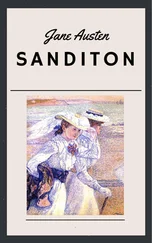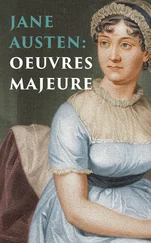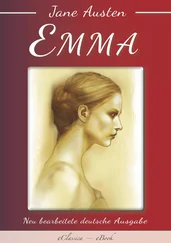Jane Austen - Collins Classics
Здесь есть возможность читать онлайн «Jane Austen - Collins Classics» — ознакомительный отрывок электронной книги совершенно бесплатно, а после прочтения отрывка купить полную версию. В некоторых случаях можно слушать аудио, скачать через торрент в формате fb2 и присутствует краткое содержание. Жанр: unrecognised, на английском языке. Описание произведения, (предисловие) а так же отзывы посетителей доступны на портале библиотеки ЛибКат.
- Название:Collins Classics
- Автор:
- Жанр:
- Год:неизвестен
- ISBN:нет данных
- Рейтинг книги:5 / 5. Голосов: 1
-
Избранное:Добавить в избранное
- Отзывы:
-
Ваша оценка:
- 100
- 1
- 2
- 3
- 4
- 5
Collins Classics: краткое содержание, описание и аннотация
Предлагаем к чтению аннотацию, описание, краткое содержание или предисловие (зависит от того, что написал сам автор книги «Collins Classics»). Если вы не нашли необходимую информацию о книге — напишите в комментариях, мы постараемся отыскать её.
Collins Classics — читать онлайн ознакомительный отрывок
Ниже представлен текст книги, разбитый по страницам. Система сохранения места последней прочитанной страницы, позволяет с удобством читать онлайн бесплатно книгу «Collins Classics», без необходимости каждый раз заново искать на чём Вы остановились. Поставьте закладку, и сможете в любой момент перейти на страницу, на которой закончили чтение.
Интервал:
Закладка:
SANDITON & OTHER STORIES
Jane Austen

Copyright
William Collins
An imprint of HarperCollins Publishers
1 London Bridge Street
London SE1 9GF
WilliamCollinsBooks.com
First published in Great Britain by William Collins in 2019
Life & Times section © HarperCollins Publishers Ltd
Fran Fabriczki asserts her moral rights as author of the Life & Times section
Classic Literature: Words and Phrases adapted from
Collins English Dictionary
Cover image © Shutterstock
A catalogue record for this book is available from the British Library
All rights reserved under International and Pan-American Copyright Conventions. By payment of the required fees, you have been granted the non-exclusive, non-transferable right to access and read the text of this e-book on-screen. No part of this text may be reproduced, transmitted, down-loaded, decompiled, reverse engineered, or stored in or introduced into any information storage and retrieval system, in any form or by any means, whether electronic or mechanical, now known or hereinafter invented, without the express written permission of HarperCollins
Source ISBN: 9780008325404
Ebook Edition © 2019 ISBN: 9780008325411
Version: 2019-08-23
CONTENTS
Cover
Title Page
Copyright
History of William Collins
Life and Times
Sanditon
Chapter 1
Chapter 2
Chapter 3
Chapter 4
Chapter 5
Chapter 6
Chapter 7
Chapter 8
Chapter 9
Chapter 10
Chapter 11
Chapter 12
Lady Susan
I
II
III
IV
V
VI
VII
VIII
IX
X
XI
XII
XIII
XIV
XV
XVI
XVII
XVIII
XIX
XX
XXI
XXII
XXIII
XXIV
XXV
XXVI
XXVII
XXVIII
XXIX
XXX
XXXI
XXXII
XXXIII
XXXIV
XXXV
XXXVI
XXXVII
XXXVIII
XXXIX
XL
XLI
Conclusion
The Watsons
Classic Literature: Words and Phrases
About the Publisher
History of William Collins
In 1819, millworker William Collins from Glasgow, Scotland, set up a company for printing and publishing pamphlets, sermons, hymn books, and prayer books. That company was Collins and was to mark the birth of HarperCollins Publishers as we know it today. The long tradition of Collins dictionary publishing can be traced back to the first dictionary William co-published in 1825, Greek and English Lexicon . Indeed, from 1840 onwards, he began to produce illustrated dictionaries and even obtained a licence to print and publish the Bible.
Soon after, William published the first Collins novel; however, it was the time of the Long Depression, where harvests were poor, prices were high, potato crops had failed, and violence was erupting in Europe. As a result, many factories across the country were forced to close down and William chose to retire in 1846, partly due to the hardships he was facing.
Aged 30, William’s son, William II, took over the business. A keen humanitarian with a warm heart and a generous spirit, William II was truly ‘Victorian’ in his outlook. He introduced new, up-to-date steam presses and published affordable editions of Shakespeare’s works and The Pilgrim’s Progress , making them available to the masses for the first time.
A new demand for educational books meant that success came with the publication of travel books, scientific books, encyclopedias, and dictionaries. This demand to be educated led to the later publication of atlases, and Collins also held the monopoly on scripture writing at the time.
In the 1860s Collins began to expand and diversify and the idea of ‘books for the millions’ was developed, although the phrase wasn’t coined until 1907. Affordable editions of classical literature were published, and in 1903 Collins introduced 10 titles in their Collins Handy Illustrated Pocket Novels. These proved so popular that a few years later this had increased to an output of 50 volumes, selling nearly half a million in their year of publication. In the same year, The Everyman’s Library was also instituted, with the idea of publishing an affordable library of the most important classical works, biographies, religious and philosophical treatments, plays, poems, travel, and adventure. This series eclipsed all competition at the time, and the introduction of paperback books in the 1950s helped to open that market and marked a high point in the industry.
HarperCollins is and has always been a champion of the classics, and the current Collins Classics series follows in this tradition – publishing classical literature that is affordable and available to all. Beautifully packaged, highly collectible, and intended to be reread and enjoyed at every opportunity.
Life and Times
‘The person, be it gentleman or lady, who has not pleasure in a good novel, must be intolerably stupid’, says Mr Tilney in Northanger Abbey , Austen’s own opinions clearly channeled through her hero’s words. She was a devoted fan of the novel form, at a time when it was considered a frivolous entertainment – yet coming from a family of enthusiastic readers, she would go on to be one of the most enduring and beloved practitioners of the form. Enjoying minor success during her lifetime, her three unpublished novels show that there was potential for so much more, before her life was cruelly cut short at the eleventh chapter of Sanditon .
Early years
Jane Austen was born on 16 December 1775, to George Austen, a cultivated and hardworking clergyman and Cassandra Leigh, who came from a prominent family in the gentry. Their household was completed by six brothers, and one beloved sister, Cassandra. Despite George Austen’s many efforts, including some farming, and running a boarding school, the family were in constant financial difficulty. However, they were uncharacteristically literary for a family of their stature. Their library housed over 500 books, and many members of the family engaged in some form of literary activity – Cassandra wrote comic verse, while two of their brothers ran a literary journal called The Loiterer , and they all often took part in amateur theatricals at home.
It is difficult to establish much of Austen’s early biography, as her work lacked an overtly autobiographical element, even though the novels were all set in her general social milieu. Later accounts of her life are derived from letters to her sister Cassandra, and two biographies, one by her brother, and one by her nephew – both of which tend to editorialize her life through their own lens of propriety. We do know that she was a prolific writer from the young age of eleven, beginning with tongue-in-cheek parodies of the novels she found in her family library. The longest and most prominent of these is Love and Freindship , which was a burlesque of the prevalent sentimental genre of the time.
‘Female Scribblers’
It was not unprecedented for a woman to have a career in writing at the end of the eighteenth century – in fact, Austen arrived at a time when professional female authors such as Ann Radcliffe and Frances Burney were carving out a market for themselves, and making a living from their writing. Austen never became as successful in her lifetime as some of her contemporaries, but her correspondences show that she was very much involved in the monetary side of her writing career. This makes sense considering that she was allowed merely £20 a year while her father was alive, and after his death was entirely reliant upon the charity of relatives. There were very few avenues for women to make money of their own, and even if they found one, it was considered at odds with respectability. Later accounts of Austen’s life attempted to portray her as indifferent to the monetary success of her writing, but this is likely more a reflection on contemporary social norms than fact. By the end of her career it is estimated that she had made £600-£700 from her writing alone, which is not inconsiderable given her financial status.
Читать дальшеИнтервал:
Закладка:
Похожие книги на «Collins Classics»
Представляем Вашему вниманию похожие книги на «Collins Classics» списком для выбора. Мы отобрали схожую по названию и смыслу литературу в надежде предоставить читателям больше вариантов отыскать новые, интересные, ещё непрочитанные произведения.
Обсуждение, отзывы о книге «Collins Classics» и просто собственные мнения читателей. Оставьте ваши комментарии, напишите, что Вы думаете о произведении, его смысле или главных героях. Укажите что конкретно понравилось, а что нет, и почему Вы так считаете.












